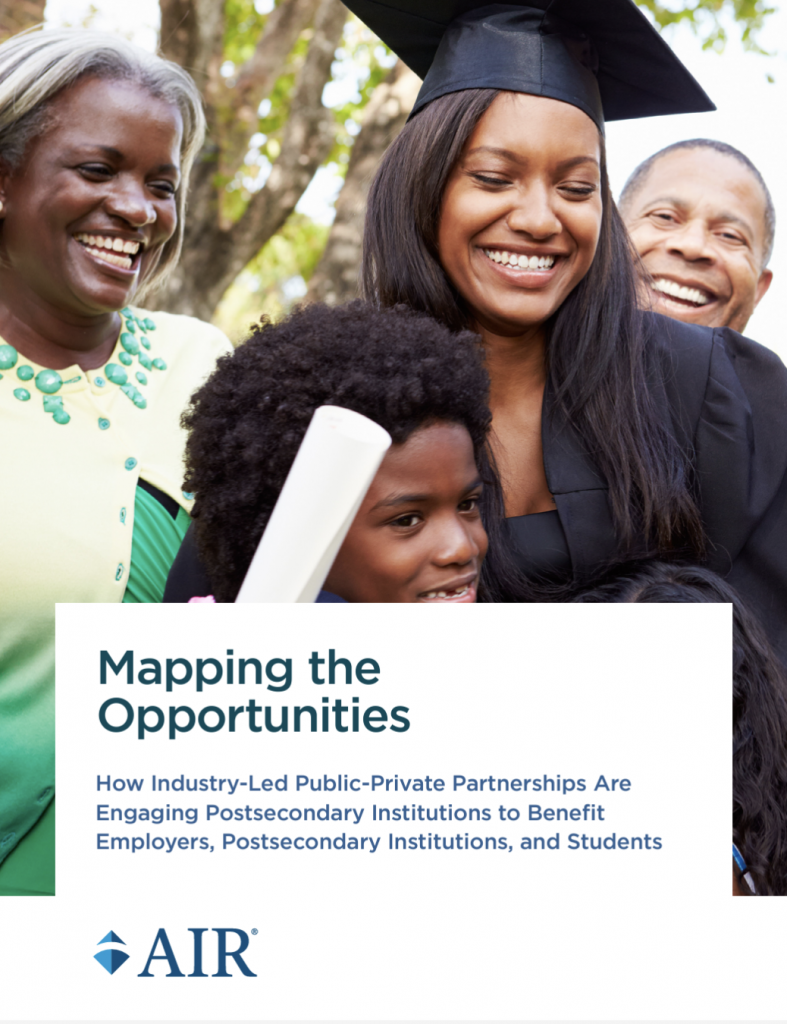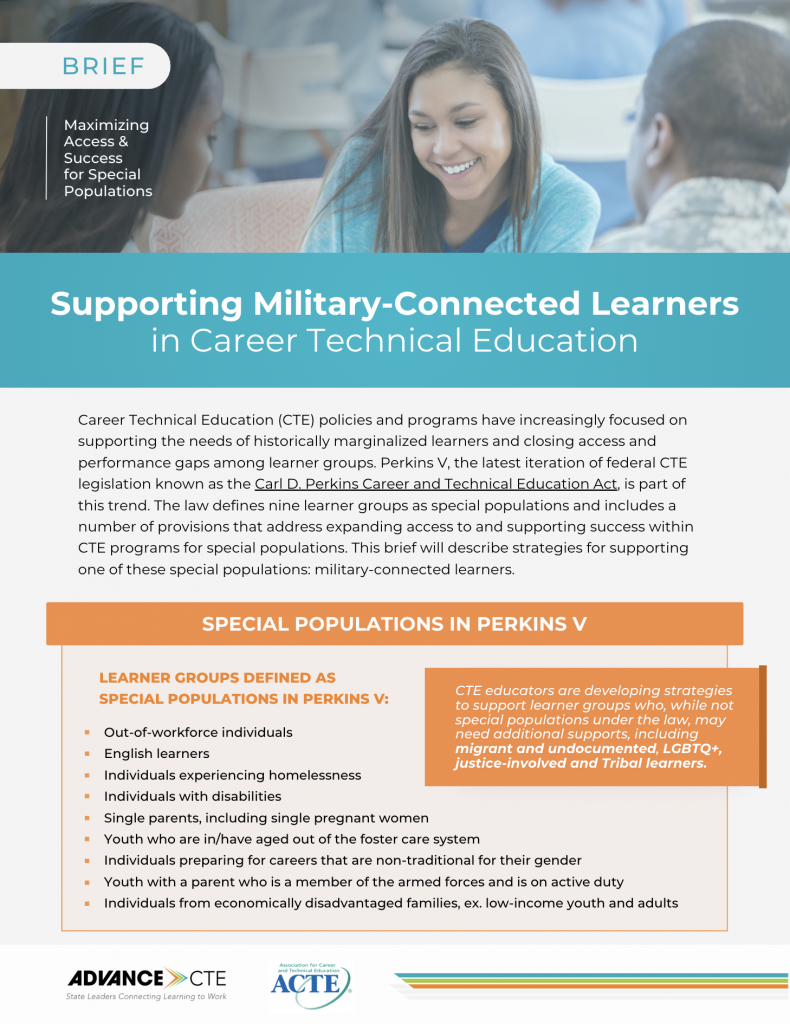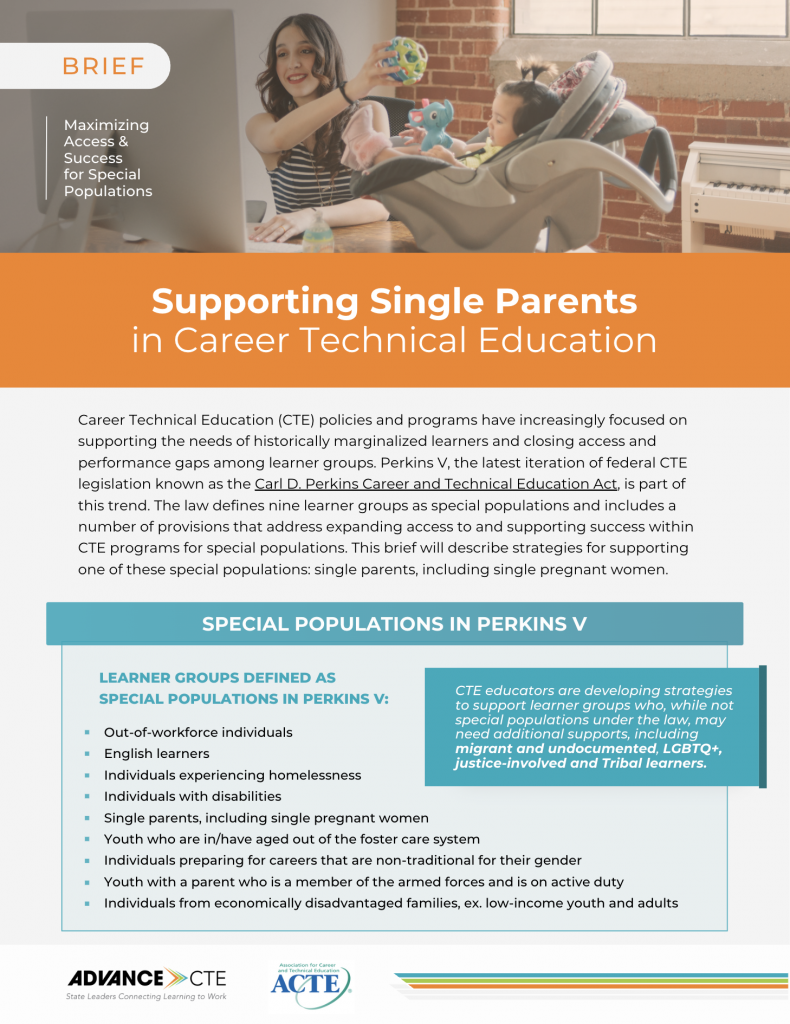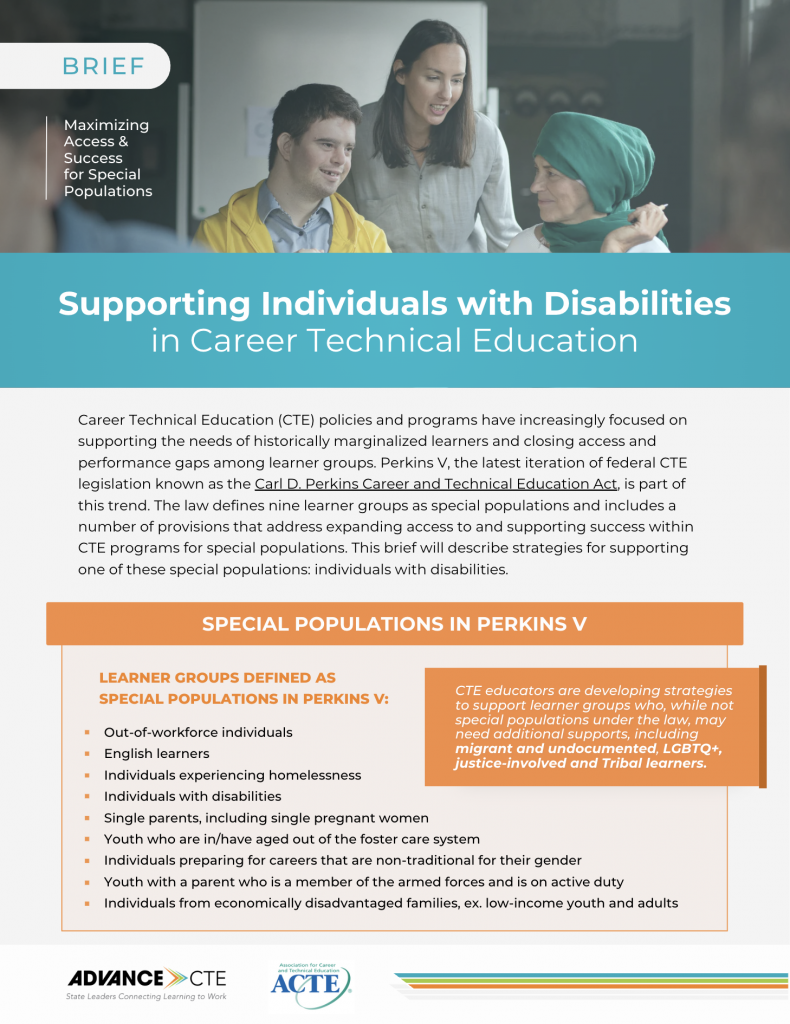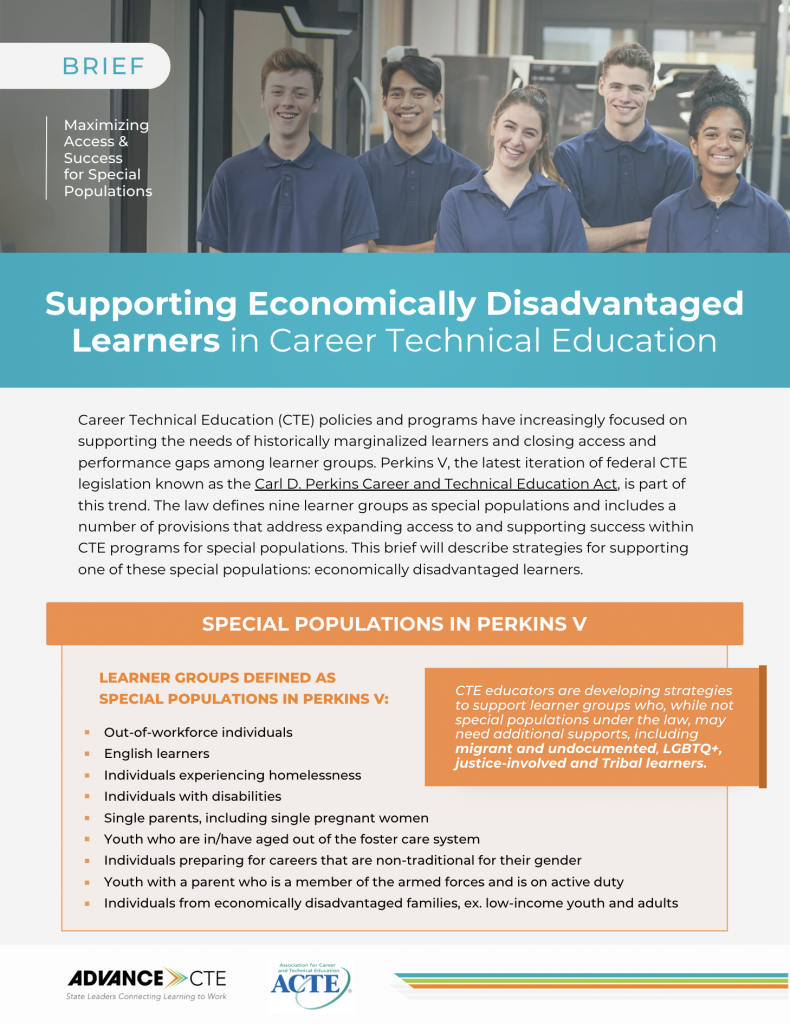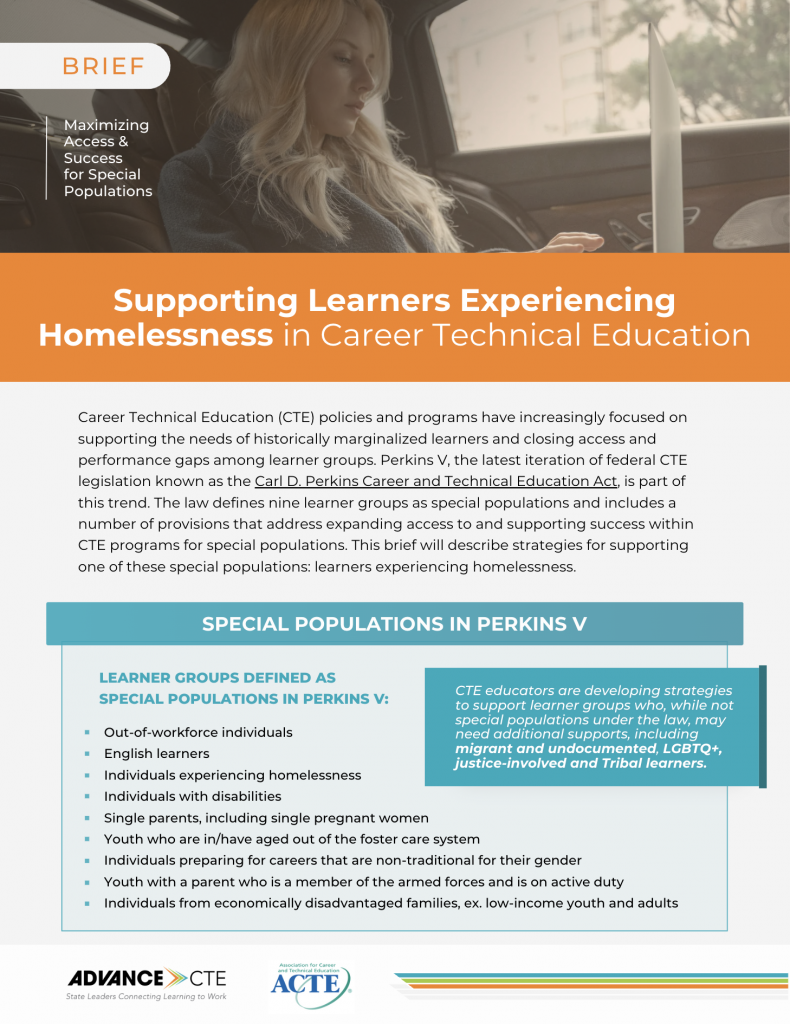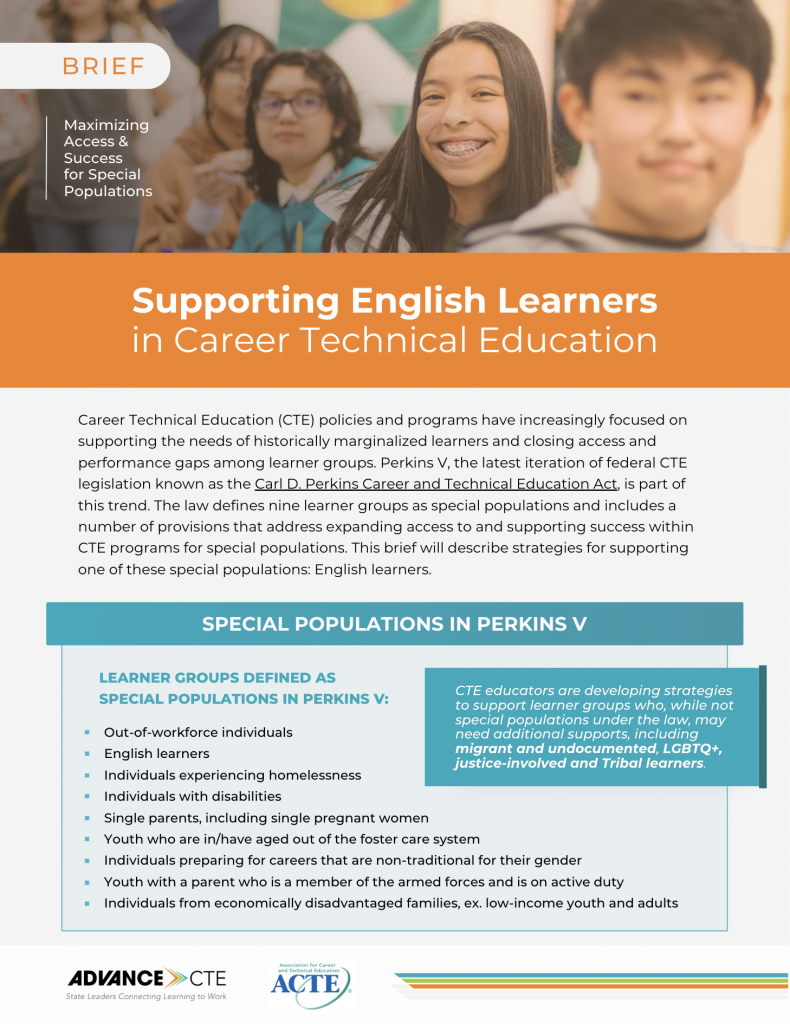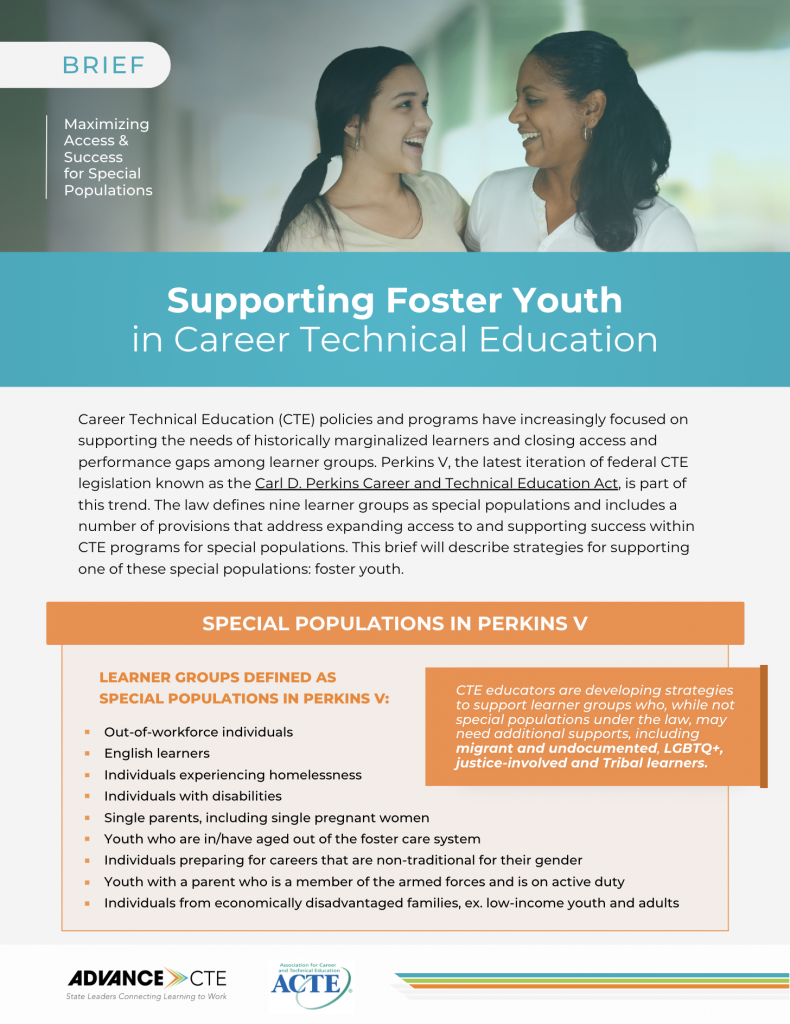Resource Center
Home » Resource Center
Learning that Works Resource Center
The Learning that Works Resource Center serves as a repository for high-quality resources to support Career Technical Education (CTE) policy and practice at the local, state, and national level.
Search
Topic
Resource Type
Education Levels
States
Explore resources groups by organizational initiatives and resources produced annually.
Latest from the Field
Submit a resource or resource edit to the Learning that Works Resource Center



